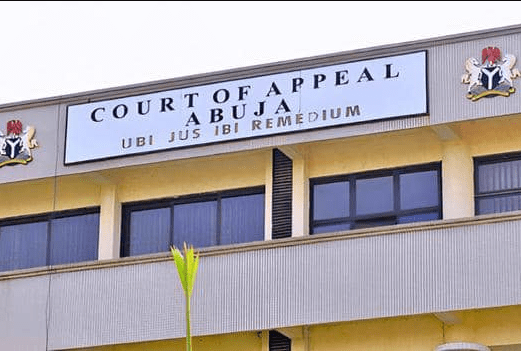The Court of Appeal in Abuja has accused the Independent National Electoral Commission (INEC) of bias.
Friday, November 1, Court of Appeal On October 24, the court accused the Commission of refusing to produce and provide duly authenticated documents that appear before the Commission to act on behalf of political parties in electoral disputes.
The court regretted that the electoral body, which was supposed to adopt a neutral position in electoral disputes, “dances empty on the market”. “INEC, as an organization, must be reminded of its role in elections. There must be an impartial mediator between the parties.
“Irresponsibility must stop because holding elections directly affects the peace and well-being of the country. “The role of INEC in electoral disputes should be limited to producing all documents used in the election and explaining why they were used and how they were obtained.
INEC should stop dancing naked in the market and ensure that her nudity and dance moves are not visible,” the court said while calling for the election of the Bauchi House of Representatives. The first verdict of the panel of three judges was delivered by Judge K.I. Ahmadis.
The panel unanimously suspended the election of the Speaker of the Bauchi House of Representatives, Abubakar Suleiman, whom INEC declared the winner of Ningi Central Constituency of the state. The court considered this evidence before deciding the election was invalid.
The Court of Appeal ordered INEC to conduct additional polls at 10 polling stations in the state within 90 days to cancel the certificate of return issued to Suleiman, who contested the membership on the platform of the Peoples Democratic Party (PDP). The court awarded an additional sum of N500,000 against INEC.
The decision follows an appeal filed by All Progressives Congress (APC) candidate Khalid Abdulmalik-Ningi. INEC said Suleiman of the PDP polled a total of 16,866 votes, beating his nearest rival, Abdulmalik-Ningi of the APC, who polled 15,065 votes in the March 18 election.
However, the APC candidate, who was not satisfied with the election results, approached the National Electoral Commission. The petitioner also alleged that the election results were annulled due to excessive voting or corrupt practices
INEC, the defendant in the case, denied the allegation that there was excessive consensus but did not call any witnesses before the court. However, the court did not accept this request.
The Court of Appeal found the decision of the Tribunal flawed, holding that the appellant presented nine witnesses who testified in relation to various polling stations and submitted certified copies of INEC documents in support of his case. It ruled that INEC documents certified under Section 137 of the Electoral Act 2022 are sufficient to support the claim that the election was not conducted in accordance with the provisions of the law.
The court disclosed why INEC annulled the election results at some polling stations and was surprised that the same was disclosed in the CE 40G form signed and submitted by the concerned officials
